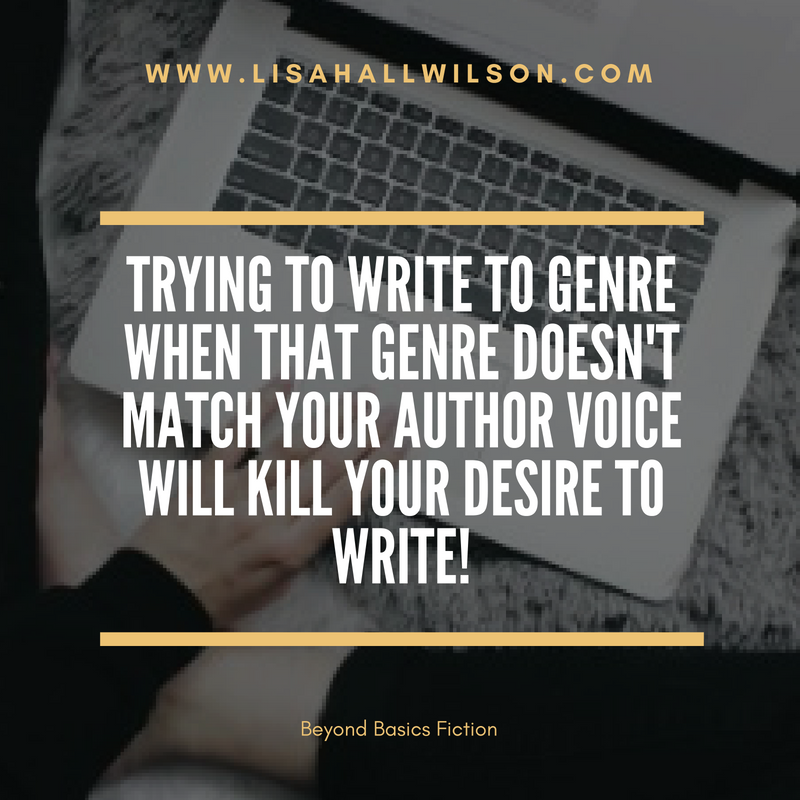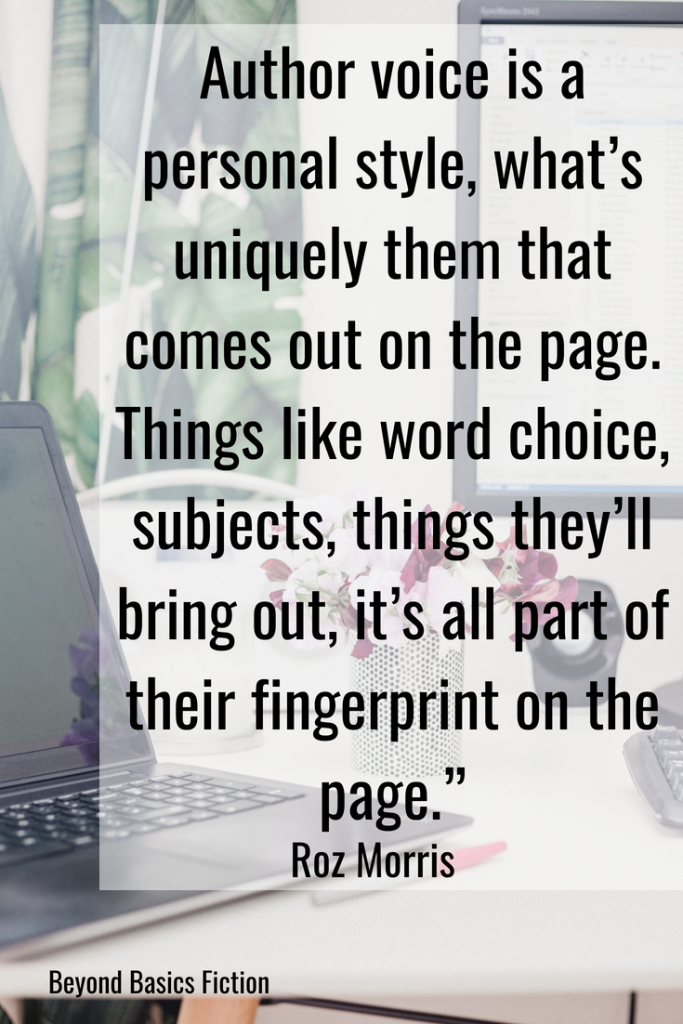
One of the things many writers get hung up on (and I did too) was finding their writer or author voice. It feels like this elusive, ethereal thing that you chase and have about as much chance of catching as netting the wind. You never feel like you’ve “found” it and some writers spend years beating their heads against a wall trying to sort it all out.
Have a seat – here’s some ice – let’s look at this with a bit of objectivity.
What Is Your Writer’s Voice?
Many people confuse marketing and branding with voice. These are not the same thing and once I figured out the differences between them this all got a lot easier. Give yourself a bit of a break here if you feel like you just can’t figure this out. If you’ve got these mixed up, it’ll be like trying to fit a moose inside an Amazon box. It just don’t fit.
Your writer or author voice is very simple. The stories you choose to tell and how you choose to tell them is your author voice. This is what distinguishes Stephen King from Margaret Atwood from Stephanie Meyer from Nicholas Sparks. Each of these writers has a unique-to-them approach and style in their storytelling. Their author voice is the same from book to book and the story details they choose to emphasize or skim over is part of voice. (This is not to be confused with character voice which should be different between characters in each stories and between characters in books.)
An author’s voice may change over the years if a writer’s been at it a while, but that’s because an author’s voice is simply an extension — a collection if you will — of what’s imortant to them, what they value, what they shake their fist at, what they can’t ignore, etc. Voice is personal and intimate and I think that’s why one of the most common questions writers are asked is – is X-character like you? Our characters are often seen as an extension of ourselves.
I have found that my voice is better suited to certain genres. For instance, I often include a romantic subplot in my stories, but I don’t write romance. Why? Marketing and Branding.
What Is Author Branding?
Author branding (or marketing – I try not to use that word around writers, we get twitchy) is the promise you make to readers. When you pick up a Stephen King novel (with a few notable exceptions) what are you expecting to read? A fast-paced, disturbing, horror novel – right? That “promise” is partly genre, but it’s partly author voice too. When you pick up a Nora Roberts novel, you expect strong female characters–it’s part of her brand and her voice. If she put out a pirate romance or tentacle porn, readers would be upset. Some readers will follow you from one genre to another becaues they love your voice, some follow you because they love your voice in that genre.
Disappointed readers don’t buy more of your books.

Where The Confusion Happens
I spent a few years helping writers with social media. I still do to a small extent, but I’m not teaching on it anymore. So, what many of my students struggled with was this crossover between voice and branding online. On Facebook (or any social channel really), you need to decide what persona you’re going to put forth. This persona should absolutely be real and authentic, but you’re allowed to withhold aspects of yourself, your life, your passions, your pasttimes, from those viewing your content online. What and how much you put forth is branding. How you craft posts, the tone, the emotion you add to that content – is author voice.
Does this make sense?
Stop Making Author Voice So Hard
All of the books you’ve read, the people you’ve met, the issues and topics you’re passionate about, your education and upbringing — all of that makes up your author voice. There are some authors who won’t write graphic violence or sex, others want to include all the dirty details of the intimate lives of their characters. Some will only write books with happy endings, or happily ever after endings. Others insist on keeping their fiction as real as possible and are OK with an ending that may not satisfy every reader. Those are author voice choices and there’s no right or wrong–there’s only a right and wrong FOR YOU!
Now, it’s important that you know your author voice well. What kinds of stories do you find yourself telling over and over again? What kinds of characters constantly find their way into your books? Rebels? Good girls? What kinds of challenges do you find yourself throwing at your characters? Are you more focused on your characters reaching a defined goal (solving the crime, getting the girl) or in growing and changing emotionally? Maybe there’s a blending of those things.

Once you know what kinds of stories you’re most drawn to telling, then look to the branding. Genre is a marketing box. It helps readers know what to expect. So, earlier I said that even though I almost compulsively have romantic subplots in my books I don’t write romance. Romance novels (and their various subgenres) promise certain things to readers that I don’t deliver. I’m not very good at Happily Ever After. Sometimes I am, but it makes me twitch to think every story has to be tied up in a neat and happy red bow. (For others, they’re not interested in telling a story that ends any other way.) I don’t market my books as romance because I don’t/can’t make the promises to readers they expect when they pick up a romance novel.
If you love reading historicals, the details and authenticity of places, times, dress, and people is important. If you get those details wrong, readers are upset. If you love authentically true historical stories AND romantic plots with a happy ending, then historical romance might be a good fit for you. Many historical fans read to learn about the history so you have to get that right. If those details aren’t super important to you as a writer but you like the mystery or exoticism of the past (this is part of voice) then perhaps you’re better to write historical fantasy where the details of the past can be fudged a little, skewed here and there to suit the story, and readers are OK with that.
Trying to write to genre when that genre doesn’t match your author voice is going to feel constraining. You might feel like you’re selling out all the time and then writing’s no fun. Writer, know thyself first and then create the brand and marketing around your unique-to-you voice not the other way around. And yes, this takes time and it means you have to write a lot to figure it all out. There may be some stories you set aside for now for the sake of building a brand.
A Real Life Example
Stephen King successfully published many horror novels like Carrie, The Shining, Salem’s Lot, The Stand all before he began exploring other genres. He tried to publish under a pseudonym and this is how wiki reports that was discovered:
“In the late 1970s and early 1980s, King published a handful of short novels–Rage (1977), The Long Walk (1977), Roadwork (1981), The Running Man (1979), and Thinner (1984)–under the pseudonym Richard Bachman…Richard Bachman was exposed as King’s pseudonym by a persistent Washington, D.C. bookstore clerk, Steve Brown, who noticed similarities between the works and later located the publisher’s records at the Library of Congress that named King as the author of one of Bachman’s novels.”
That’s author voice!
How long did it take you to discover your author voice? What’s distinctive about YOUR author voice?
Been told you should learn Deep Point Of View? Had an editor or critique partner tell you to “go deeper” with the emotions in your fiction? Looking for a community of writers seeking to create emotional connections with readers? Check out the Free Resource Hub and then join the Going Deeper With Emotions In Fiction Facebook group.
Thanks Lisa! I’ve been circling the issue of author voice for some time, and I feel as if I’m starting to lock it down. Recent events have helped me to more clearly see my core story which in turn has helped with me to recognize my voice. Branding? Well, that’s still a serious work in progress. I write primarily contemporary romance, but I’m also working on a woman’s fiction novel with a central romance (the romance has an HEA, the overriding plot…it’s less clear, more real), and a romantic suspense series. The heroines and heroes all have commonalities, and I, at least, can see my voice in all of the stories. As for branding, my stories have different angst levels, and some of the plots are darker, so putting this all together is going to take some careful thought. But, sometimes, like while designing a web page, the lines between voice and brand blur. Thanks for this post.
It took a while for me to figure it out too, but it’ll all come together the more you think on it. 😀 Understanding the difference between voice and branding was a big lightbulb moment for me.